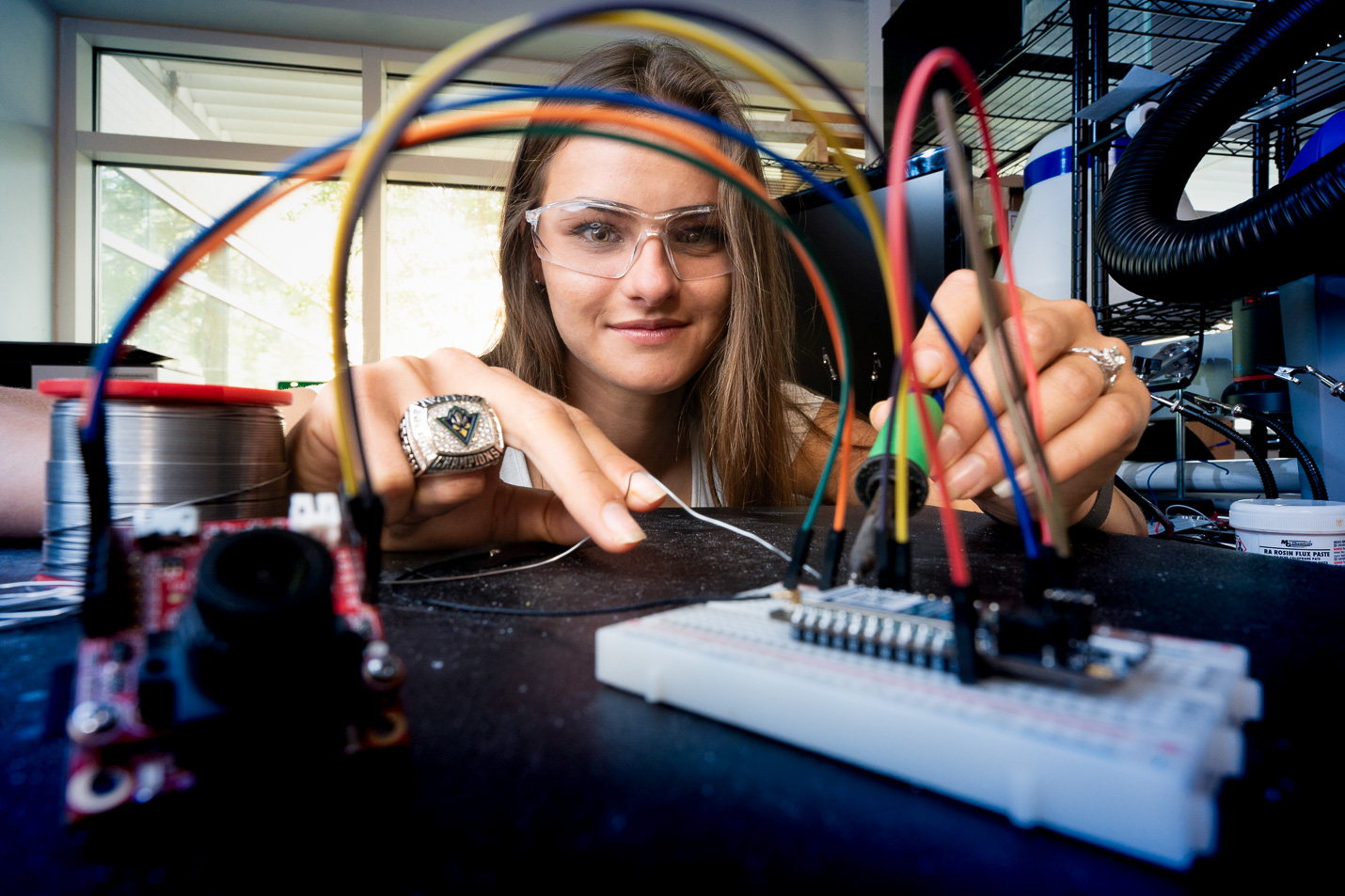
Photo: Jeff Janowski/UNCW
For many students, the path to college is filled with unexpected twists, and this is an experience Bentley Settin ’24 knows all too well. Settin’s introduction to UNCW was through a unique recruiting process that began in middle school for soccer. While she found herself drawn to UNCW's beautiful coastal setting, she claims it was the university's unwavering support for her after she tore her ACL and menisci that led her to choose UNCW.
Since then, she joined the Honors College, became a dedicated women’s soccer team captain her senior year and a successful researcher. Settin, a recipient of the Alexander Weide Soccer Scholarship Endowment, is an oceanography major with a biology minor.
“My experience at UNCW has prepared me in many ways for the future. I have been blessed to be a part of a variety of research projects, and even create my own,” said Settin. “At UNCW there are so many opportunities to step into the lab and field and gain skills and knowledge that you cannot learn without just doing it!”
Settin researched sea level rise on Masonboro Island during her freshman year with the First-Year Research Experiment (FYRE). Since then, she has worked on projects including sampling and identifying foraminiferal tests from sediment cores in Belize, analyzing storm impacts on Masonboro Island, working on shellfish hatchery operations and helping engineer a low-cost carbon dioxide flux sensor. All of this helped lead her to her senior honors thesis, which focuses on coastal communities in the Carolinas that experience ongoing issues with tidal flooding.
“The risks of tidal flooding are increasing with rising sea levels, thus requiring proactive innovation. The purpose of the TinyCamML (Tiny Camera with Machine Learning capabilities) is to be an easy-to-use and reproducible device for coastal researchers who are studying flood patterns by providing accurate and real-time data as well as communities in the vicinity of the deployed devices,” she said.
The TinyCamML is an on-device machine learning camera (OpenMV), which sends data to a cellular modem called Particle Boron, said Settin. The modem then sends updates to Google Sheets. Every six minutes, a microcontroller wakes up the camera, takes a snapshot of the roadway, accesses it, and reports either a flood or no flood.
“The overall implications of this device would be to better understand tidal flooding patterns to increase awareness and protection for coastal communities along the Carolinas,” she said.
Settin plans to further her education with a master's in science and engineering. She’s thankful for her transformative journey at UNCW and the research opportunities she pursued at the undergraduate level.
"If you told my freshman self that I would be programming and building sensors for the community, I would have been overjoyed yet surprised I could ever do that, especially at an undergraduate level," she said. "It has been far from easy and involved weeks of failure, but I would not have changed it for the world!"
This article has the following tags: Seahawk Stories


